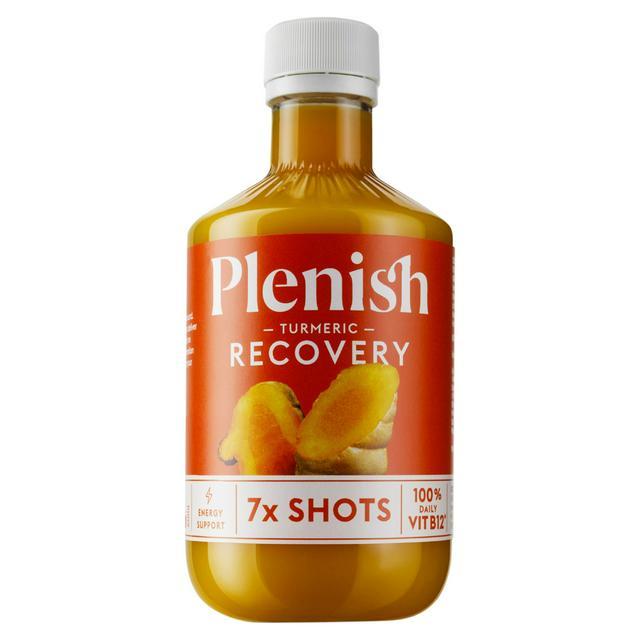When it comes to natural remedies for recovery and inflammation,turmeric has steadily gained attention for its potential benefits. This vibrant yellow spice, commonly found in many kitchens, contains a compound called curcumin, which is believed to have anti-inflammatory and antioxidant properties. In this article, we’ll explore how turmeric can be used effectively to support the body’s recovery process and combat inflammation, providing a balanced look at the science behind this popular natural remedy. Whether you’re dealing with everyday aches or more persistent inflammation, understanding how turmeric works could be a valuable addition to your wellness routine.
Table of Contents
- Benefits of Turmeric in Reducing Inflammation and Accelerating Recovery
- How Curcumin Works to Support the Body’s Natural Healing Processes
- Optimal Dosage and Best Practices for Incorporating Turmeric into Your Routine
- Potential Interactions and Safety Considerations When Using Turmeric Supplements
- Insights and Conclusions
Benefits of Turmeric in Reducing Inflammation and Accelerating Recovery
Turmeric, revered for centuries in traditional medicine, owes much of its healing power to curcumin, a potent active compound. Scientific studies have shown that curcumin exhibits strong anti-inflammatory properties by inhibiting molecules that play a major role in inflammation. This makes turmeric an effective natural remedy to soothe swollen joints, reduce chronic inflammation, and alleviate muscle soreness after intense physical activity.Incorporating turmeric into your diet can help manage inflammation without the side effects often associated with pharmaceutical options.
Beyond inflammation control,turmeric also supports faster recovery by promoting tissue repair and enhancing antioxidant defenses. Its ability to neutralize free radicals reduces oxidative stress, which is crucial during the healing process. Regular use can improve overall cellular health and boost the body’s resilience against injury-related stress. whether added to meals or taken as a supplement, turmeric offers a holistic approach to accelerating recovery.
- Natural anti-inflammatory agent
- Reduces muscle soreness post-exercise
- Supports tissue regeneration
- Enhances antioxidant protection
- Safe choice to conventional anti-inflammatory drugs
How Curcumin Works to Support the Body’s Natural Healing Processes
Curcumin, the active compound found in turmeric, interacts with the body’s biochemical pathways to enhance its natural recovery mechanisms. It supports the regulation of inflammatory molecules like cytokines and enzymes, helping to reduce chronic inflammation that can impede healing. Additionally, curcumin boosts antioxidant defenses by neutralizing free radicals, which are harmful molecules that contribute to cellular damage and slow the recovery process.
Key benefits of curcumin’s action include:
- Modulation of inflammatory signaling pathways to promote tissue repair
- Stimulation of immune system responses aiding faster recovery
- Enhancement of cellular regeneration through improved blood circulation
- Reduction of oxidative stress that can otherwise delay healing
Through these multifaceted effects, curcumin serves as a powerful natural agent that supports the body’s ability to heal itself efficiently and maintain balance amid daily stresses.
Optimal Dosage and Best Practices for Incorporating Turmeric into Your Routine
To experience turmeric’s full potential for recovery and inflammation management, dosages typically range from 500 to 2,000 mg of curcumin per day. Though, as turmeric root contains only a small percentage of curcumin, standardized supplements are frequently enough recommended for consistency and potency. Starting with lower doses and gradually increasing allows you to monitor tolerance and avoid any digestive discomfort. It’s also crucial to take turmeric alongside black pepper extract (piperine), which significantly enhances curcumin’s bioavailability by up to 2,000%. Consuming turmeric with a healthy fat, like coconut or olive oil, further improves absorption, making your routine more effective.
- Choose quality supplements: Opt for turmeric with proven curcumin concentration and added piperine.
- Timing matters: split your dosage into two or three servings throughout the day to maintain consistent blood levels.
- Integrate with meals: Combine with fats and pepper-rich foods or supplements for better effects.
- Consult a healthcare provider: Especially if pregnant, breastfeeding, or taking medications that may interact with turmeric.
Potential Interactions and Safety Considerations When Using Turmeric Supplements
While turmeric is celebrated for its anti-inflammatory and recovery-enhancing properties, it’s crucial to be mindful of how it interacts with other medications and your overall health status. Turmeric’s active compound, curcumin, can affect blood clotting mechanisms, so those on blood thinners such as warfarin or aspirin should consult a healthcare professional before starting supplements. Additionally, turmeric may alter the effectiveness of diabetes and stomach acid medications, possibly requiring dosage adjustments to avoid unexpected side effects.
To ensure safe use,keep these considerations in mind:
- Consult a healthcare provider if you are pregnant,breastfeeding,or managing chronic illnesses.
- Avoid excessive doses to prevent gastrointestinal discomfort such as nausea or acid reflux.
- Watch for allergic reactions,especially if you have a history of allergies to plants in the ginger family.
- Disclose all supplements and medications to your doctor to prevent adverse interactions.
Insights and Conclusions
Incorporating turmeric into your recovery routine can be a natural and effective way to combat inflammation and support overall wellness. While it’s not a miracle cure, the active compound curcumin has shown promising anti-inflammatory and antioxidant properties that may enhance your body’s ability to heal and rejuvenate. As with any supplement or dietary change, it’s important to consider your individual health needs and consult with a healthcare professional to ensure turmeric is right for you.By understanding how to use turmeric thoughtfully, you can potentially add a valuable tool to your recovery toolkit and promote long-term health.

